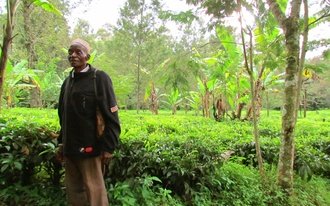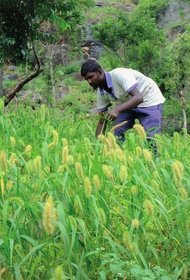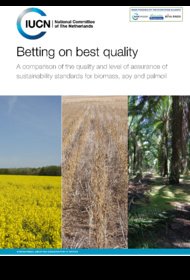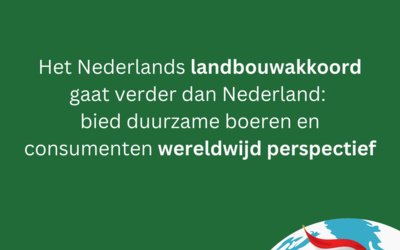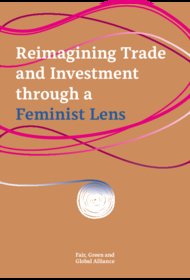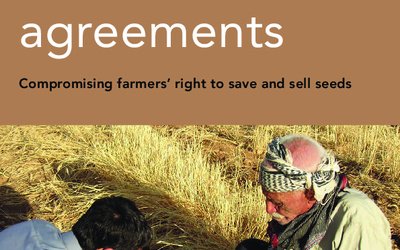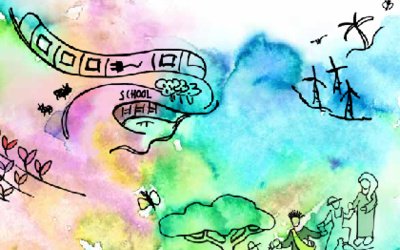The Netherlands can contribute much to making agriculture sustainable – nationally and internationally
If the Netherlands wants to make its agriculture and livestock industry sustainable and to ensure that farmers get a fair price for their products, it will also have to look beyond its own borders. The Netherlands is the world's second largest exporter of agricultural products. We have a great impact because, through our trade relations, we uphold a system of intensive agriculture that destroys ecosystems and undermines local production. Partly due to our trade in agricultural products, the Dutch economy is has a large, and growing, footprint. That should and can be different: the Netherlands is in a good position to lead the required transition in agriculture. Fortunately, the party manifestos for the coming elections offer sufficient opportunities to set that in motion. A new coalition can thus take decisive new steps.
The road to sustainability
Most of the attention in the manifestos goes to achieving sustainability at national level. PvdA, GroenLinks, PvdD, SP, ChristenUnie and D66 want to see agriculture and the livestock industry made completely sustainable and focus on nature-inclusive and circular agriculture. Their manifestos give the government a stimulating and regulatory role in achieving these aims. CDA and VVD lay the emphasis on using technological solutions to make the existing agricultural model sustainable. The government provides a supportive framework, with farmers themselves playing an initiating and leading role.
The parties are in general agreement that farmers should get a fair price for their products, chains should be shorter and products should be marketed and consumed locally. That calls for a radical change of direction, especially in our foreign policy. Dutch banks, companies and agricultural engineers actively promote and support the Dutch agricultural model in all kinds of ways beyond our borders, while that model is the subject of much criticism at home.
Trade and investment agreements
Trade agreements are an important component of the export strategy for our non-sustainable agricultural model. Agreements that the Netherlands and the EU have concluded or will conclude in the future with countries in Asia, Africa and Latin America allow large-scale producers to open up new markets, at the expense of small local farmers.
The provisions in these agreements throw up severe obstacles for local food producers. Farmers in Indonesia can only produce rice sustainably if they can use their own local seeds. But that is all too often prevented by international trade agreements that favour giants like Bayer and Syngenta. Women in Guatemala wishing to plant food forests have to compete for water with rapidly expanding palm oil plantations in the hands of foreign multinationals, whose activities are made possible by banks, insurance companies and trade and investment agreements.
But famers in the Netherlands, too, are disadvantaged by these agreements. Dutch growers are coming under pressure from large-scale and cheaply produced green beans from Senegal and Morocco – mainly produced by an originally Dutch company. Cheap, non-sustainably produced roses from Kenya are making it difficult for Dutch greenhouse farmers to grow them sustainably. And there are many more examples. The EU-Mercosur agreement, which has been criticised by a majority in parliament, has increased competition from South American meat and crops produced according to much less stringent sustainability standards and also pose a great threat to the Amazon region.
The Netherlands is part of the solution
Rather than being part of the problem, the Netherlands can be part of the solution. To really get the transition to sustainable agriculture moving, the new coalition will have to discourage the production of non-sustainable products like soya and palm oil by imposing strict sustainability requirements on the import of these bulk goods. In the EU and WTO, it can call for provisions to be included in new trade and investment agreements like the EU-Mercosur agreement imposing import duties on non-sustainable products. Within its own trade agreements, like that with Indonesia, the new government can combat the monopoly of giant seed companies that make it impossible for farmers to use their own seeds.
Practice has shown that food forests and other agro-ecological initiatives within and outside the Netherlands are future-proof and profitable. The new coalition can reward Dutch farmers who also wish to operate sustainably beyond our borders – the front runners who we have to rely on – and where possible encourage this development by giving them financial support instead of continuing to support non-sustainable agricultural companies.
Our science is a potential ally for the new coalition. Wageningen and other universities are breeding the talent and energy to make sustainability the norm. Together with scientists, the Netherlands can invest in expanding agro-ecology and other forms of sustainable and circular agriculture and livestock breeding. That can start with trade missions aimed primarily at exporting these methods instead of our large-scale, twentieth century agricultural model.
What the Netherlands does beyond its borders is of enormous importance for the international sustainable agriculture and food transition. It is up to the new coalition to take on the responsibility that comes with that role, and to give the transition a substantial boost within and outside the Netherlands.
Read more about this subject
-
Dossier
The Netherlands, the world and the elections
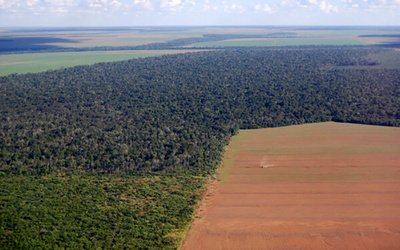
Elections are soon to be held in the Netherlands. The political parties are sharpening their knives and have outlined their plans in hefty manifestos. Not surprisingly, they mainly focus on domestic issues. International themes are primarily addressed in terms of opportunities for Dutch companies and threats in areas like health, privacy and competition that we need to protect ourselves against. But if we want to make the Netherlands sustainable, we especially need to look at our footprint beyond our own borders and make every effort to reduce it. In the weeks leading up to the elections, Both ENDS looks at where the parties' manifestos offer opportunities to achieve that.
-
Dossier
Trade agreements
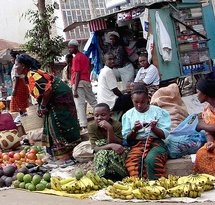
International trade agreements often have far-reaching consequences not only for the economy of a country, but also for people and the environment. It is primarily the most vulnerable groups who suffer most from these agreements.
-
Event / 9 November 2023, 20:30 - 22:30
Election debate: The Netherlands in the world
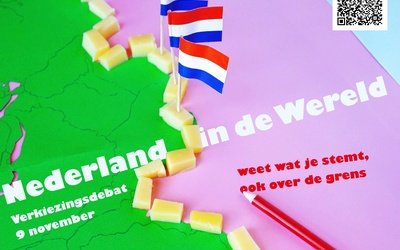
See the Dutch web page for more information (in Dutch).
-
News / 16 November 2023
Voting with a worldwide impact
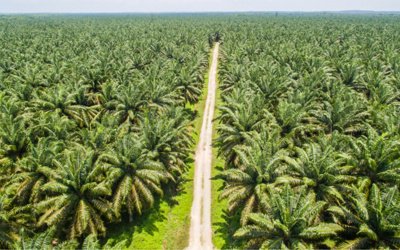
Disposable fashion items continue to flood into the country, the nitrogen crisis has brought construction to a standstill and energy poverty is on the rise, but Dutch politicians are contemplating their navels. These are problems that we can never solve on our own. The clothes we wear, the food on our plates, and the electricity that comes out of our wall sockets – they are all produced in global trade and production chains. With far-reaching consequences, both in our own country and far, very far beyond our borders. It would be naive to think that we can solve all these problems through domestic policies alone. And vice versa: we would be evading our responsibilities if we continued to believe that the Netherlands only plays a humble role on the global stage. Latest figures show that the Netherlands is the fourth largest exporter and the seventh largest importer of products worldwide. With the elections on the way, it is time to look beyond our own small country. Because it is also important to vote with a worldwide impact.
-
Publication / 29 November 2021
-
News / 27 May 2021
Friday May 28: international day at the Wake for the Climate
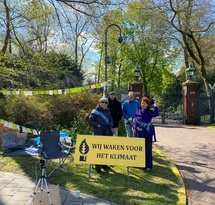
During the formation of a new Dutch government after the general elections in March, a group of concerned citizens is holding a wake in front of the Prime Minister's residence to remind the political leaders of the climate crisis. On Friday May 28, they will pay attention to the international aspect, initiated by Cordaid, Oxfam Novib, Care, ActionAid, WECF, Hivos and Tearfund. Both ENDS is happy to support the initiative.
-
Press release / 21 April 2023
Manifesto: The Netherlands can reduce its international footprint with new Agricultural Agreement
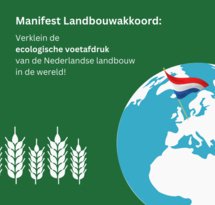
The Dutch Agriculture Agreement, which is currently under development, is too much focused solely on the Netherlands. That is the opinion of a broad coalition of more than sixty NGOs, farmers' organisations, scientists and companies that have today sent an urgent letter to agriculture minister Piet Adema and foreign trade and development minister Liesje Schreinemacher. The government's agricultural policy should also aim to reduce the Netherlands' enormous agrarian footprint beyond our borders, by taking food security and the preservation of biodiversity as its starting points. The coalition has published a manifesto in which it sets out how reform of the Netherlands' foreign agricultural policy could be given shape.
-
Publication / 27 January 2015
-
Publication / 24 April 2023
-
Publication / 30 October 2023
-
News / 14 March 2021
Vote for the Climate!
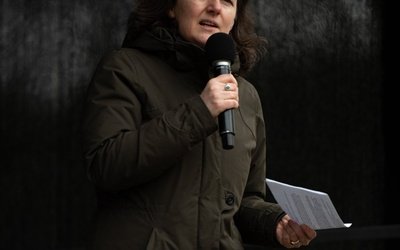
A number of our colleagues at Both ENDS made a lot of noise at various locations around the country today, as part of the national Klimaatalarm (Climate Alarm) campaign. Annelieke Douma gave a short speech in Haarlem on the major role played by the Netherlands in climate change and environmental degradation beyond our borders. She made a number of suggestions that would immediately make Dutch foreign policy a lot more climate-friendly. Below is the text of her speech.
-
Transformative Practice
Agroecology
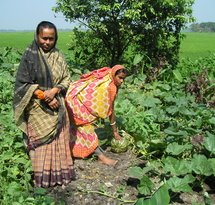
Agroecology is a diverse set of agricultural practices, a field of science and a social movement. It aims to transform food systems towards greater ecological sustainability, social justice, and resilience. Both ENDS and CSO-partners around the world support farmers and pastoralists practising agroecology, both on the ground and in gathering political and financial support.
-
Dossier
Rich Forests
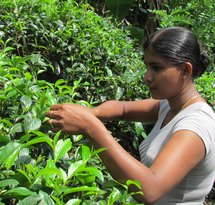
Rich Forests promotes a sustainable and future-proof production system and supports, among other things, the transformation of degraded land into food forests. With this, people provide for their livelihood, increase their income and at the same time restore soil and biodiversity.
-
Publication / 7 November 2018
-
News / 29 June 2020
Global civil society pushes for mandatory environmental and human rights rules in the EU
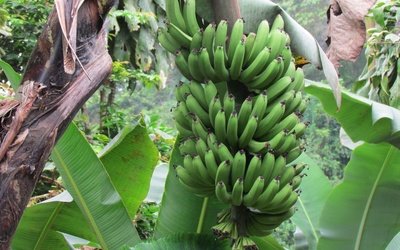
On 23 July 2020 a global network of NGOs working to strengthen corporate accountability for environmental destruction and human rights abuses, including Both ENDS, published an open letter to European Commission DG Justice Commissioner Reynders. The letter is a response to his recent commitment to propose legislation in 2021 on both corporate due diligence and directors’ duties as part of an initiative on sustainable corporate governance.
-
News / 18 April 2023
The Future We See - dialogues about sustainable and just global systems
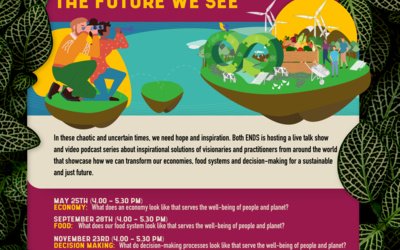
In these uncertain times of accumulating national, international and global crises, we need hope and inspiration more than ever. Fortunately, many hopeful ideas and initiatives are already existing that show that it is indeed possible to change the world - and especially the systems behind it - in a sustainable and fair way. What opportunities are to be found, what is hopeful, what is already happening and how can we, as the Netherlands, respond to this?
-
Blog / 16 June 2020
The political and industrial elites in Indonesia grasp their opportunity
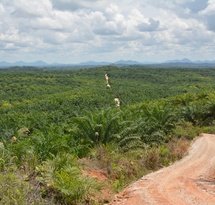
In September 2019, the streets of Jakarta were filled with angry demonstrators protesting against the Omnibus Employment Law. The law will ease the rules for mining, make it much more difficult to hold companies liable for criminal acts and severely restrict the power of the national anti-corruption committee. At the moment, such protests are completely impossible in Indonesia because of the COVID-19 crisis and the associated lockdown measures. And Indonesian people already had few other means of exerting influence on decision-making and legislative processes.
-
News / 15 March 2021
How well is the Netherlands progressing in achieving the SDGs?
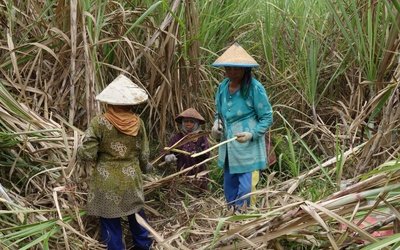
In 2015, the United Nations instigated the Sustainable Development Goals (SDGs). These seventeen interrelated goals are intended to result, by 2030, in a better, fairer and more sustainable world in which no one is left behind. As a member of the UN, the Netherlands is committed to promote the SDGs and every year Statistics Netherlands (CBS) and the central government publish reports on the progress made. The initiators of 'SDG Spotlight Nederland' however believe that there is a need for an annual report on the Netherlands' performance on specific SDGs from a different perspective. Fiona Dragstra and Stefan Schuller of Both ENDS contributed to the report on 2020 and tell us here why they think it is so important.
-
Event / 7 December 2021, 14:00 - 15:15
WEBINAR: EU's push for strong Intellectual Property Rights (IPR) on seeds
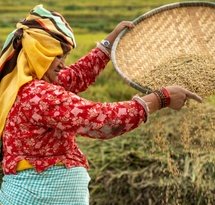
The European Union's (EU) foreign trade policy has many implications for the sustainability of food systems in developing countries, heavily impacting farmers, breeders, and citizens. The unhidden promotion by the EU of strong intellectual property rights on plants affects food systems from its very basis, i.e., the seeds that are available for farmers to grow. Amongst these intellectual property rights, the main instrument that is advocated by European authorities is the 1991 Act of the UPOV Convention, which provides exclusive rights to breeders over the propagating material of new plant varieties, while diminishing the rights of others to use the material for further breeding and hampering with the rights of farmers to freely save, use, exchange and sell their seeds.
-
Publication / 12 November 2020



